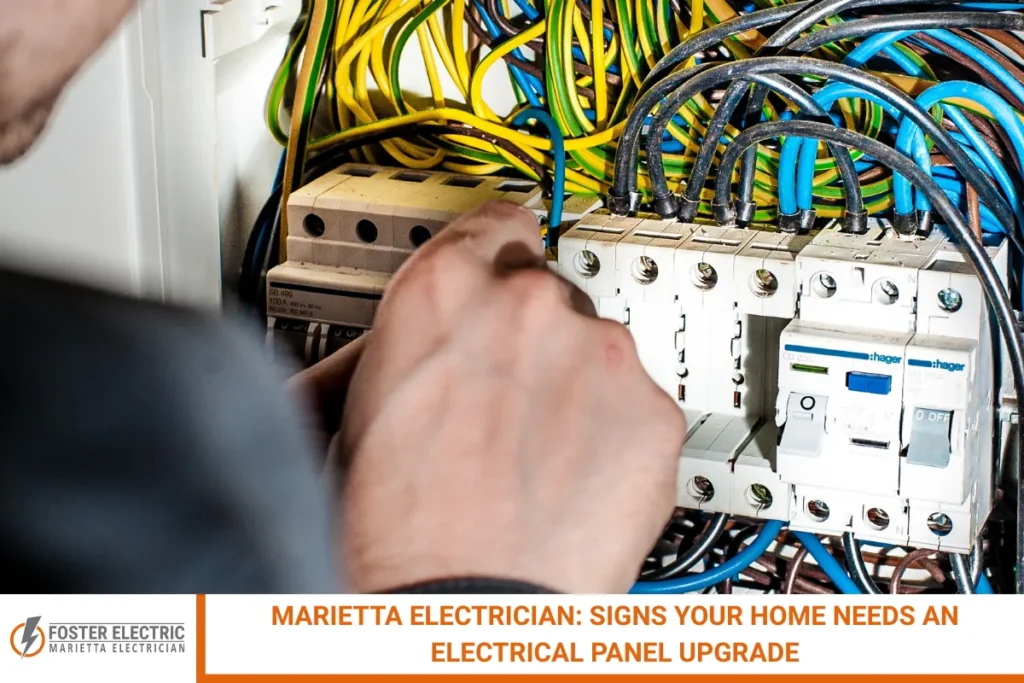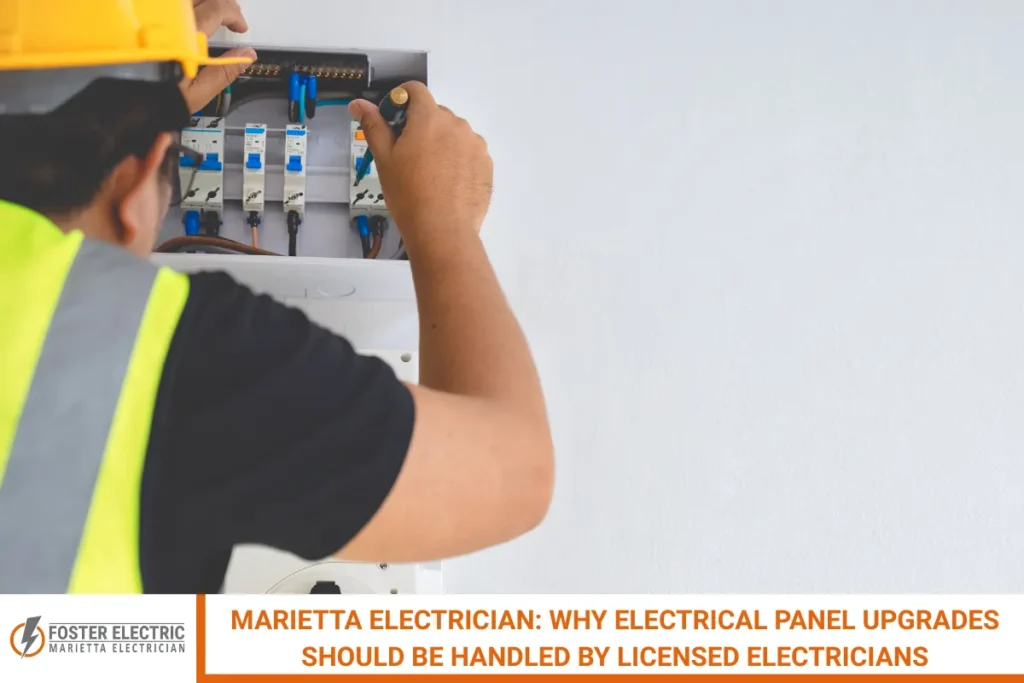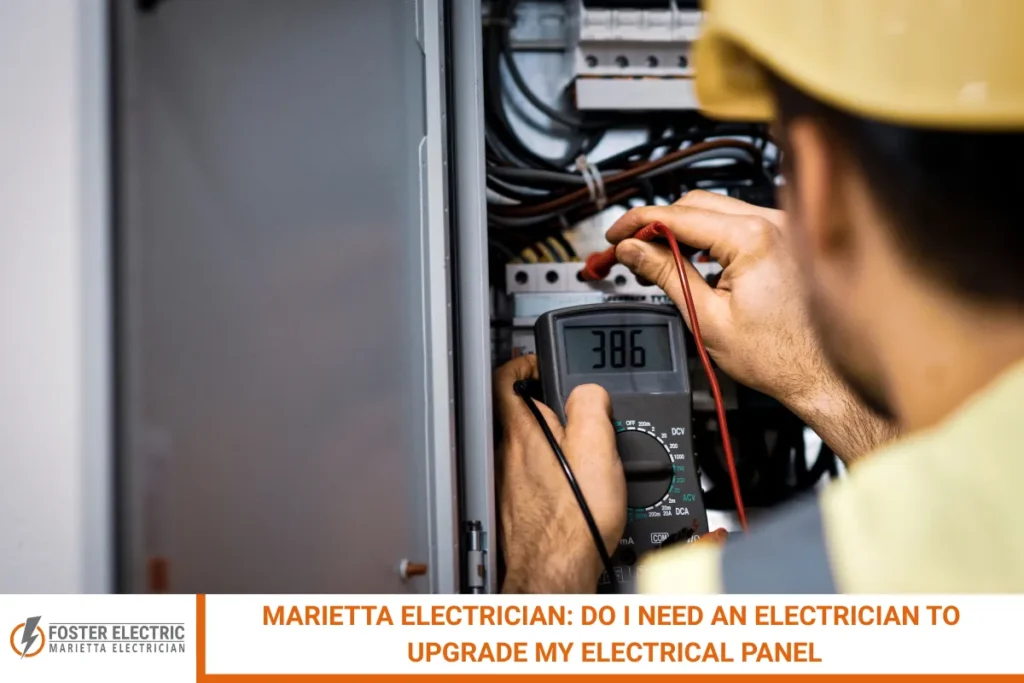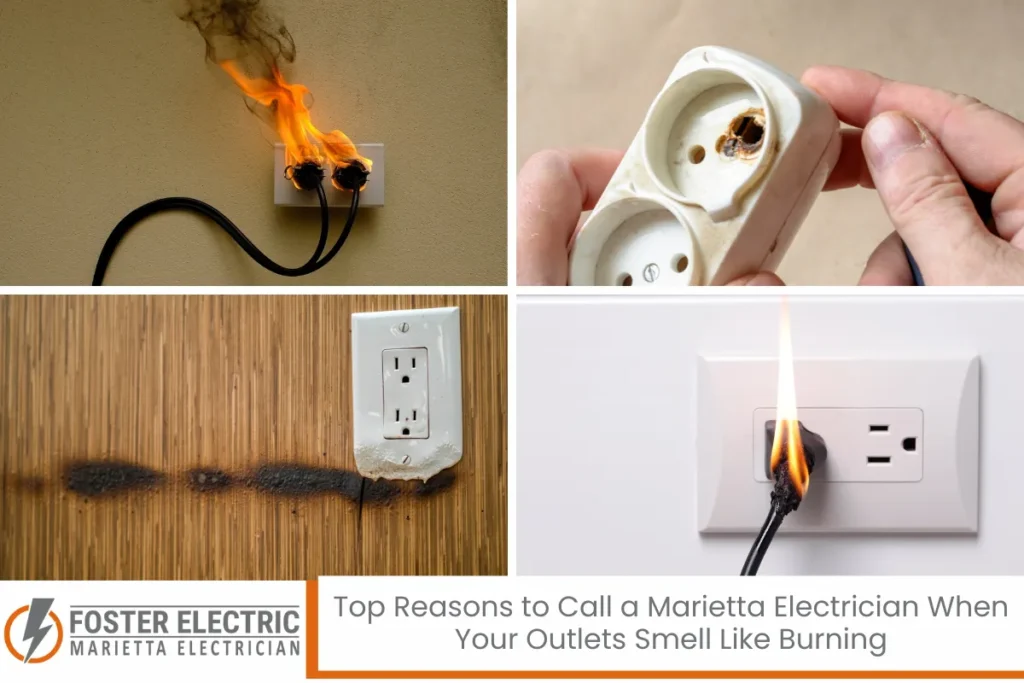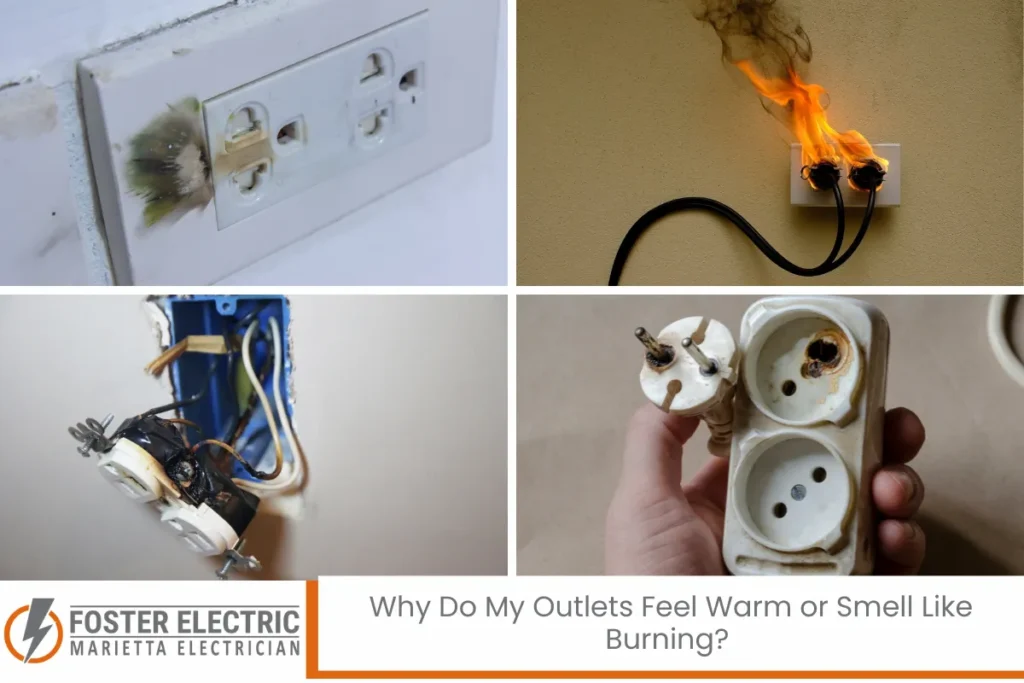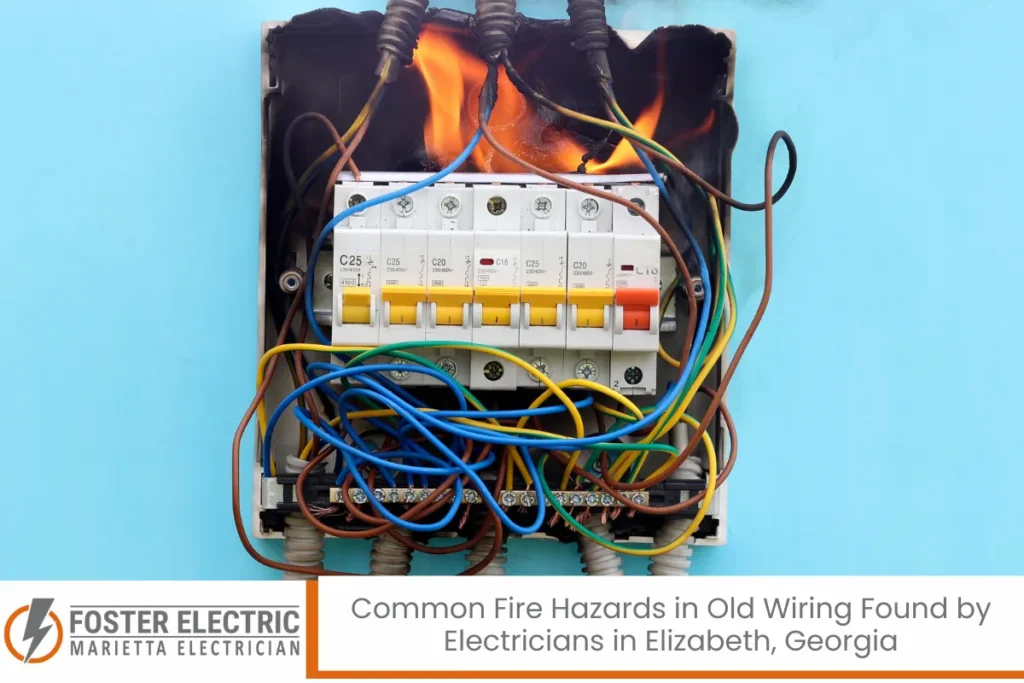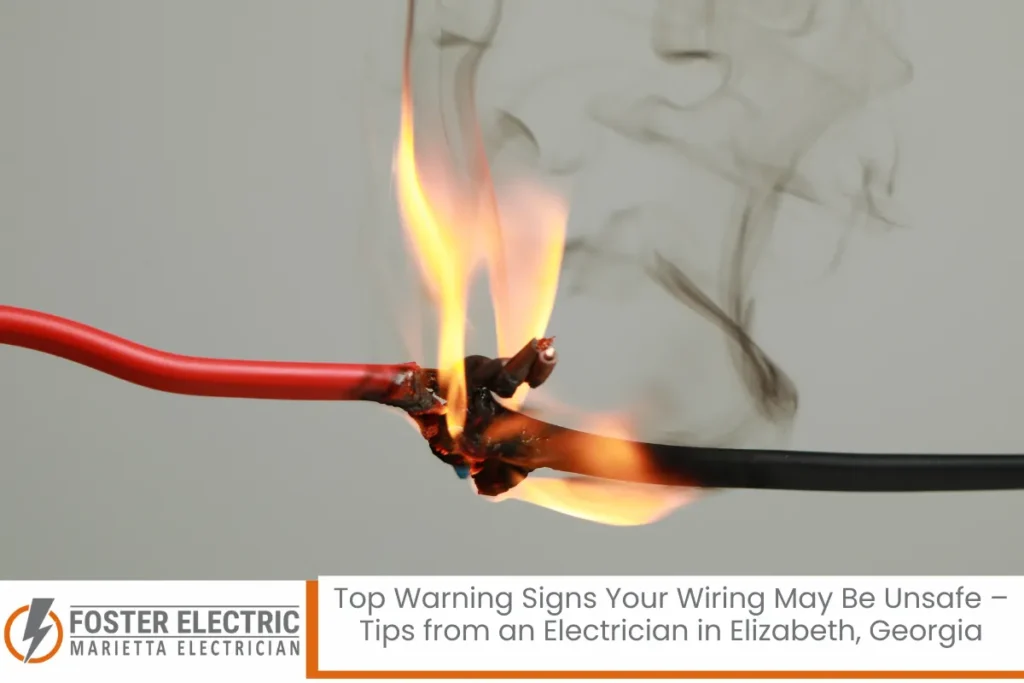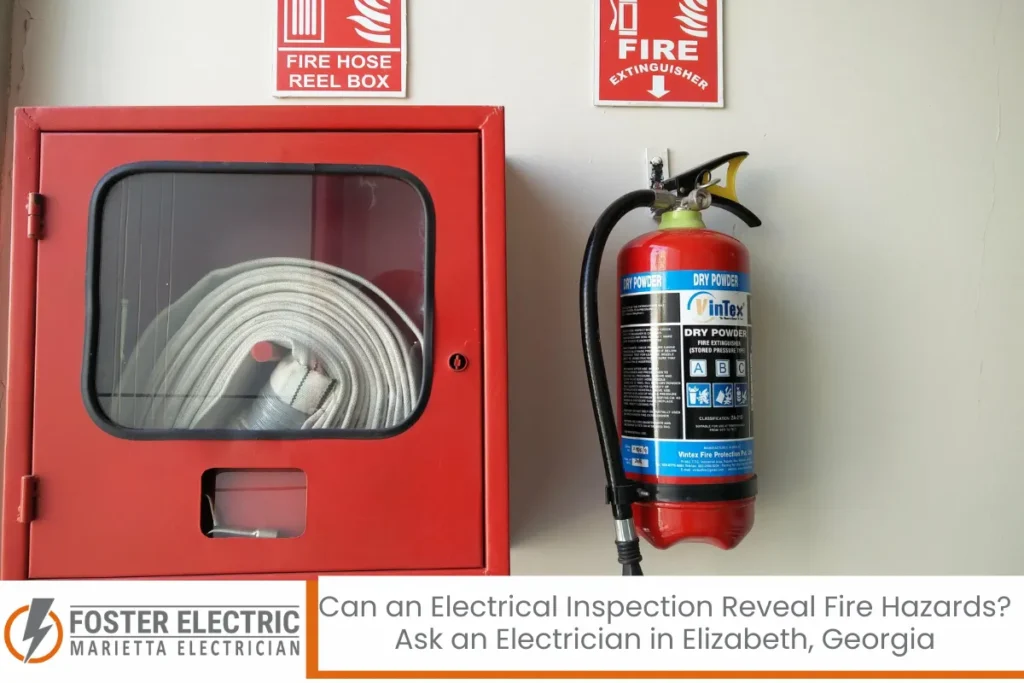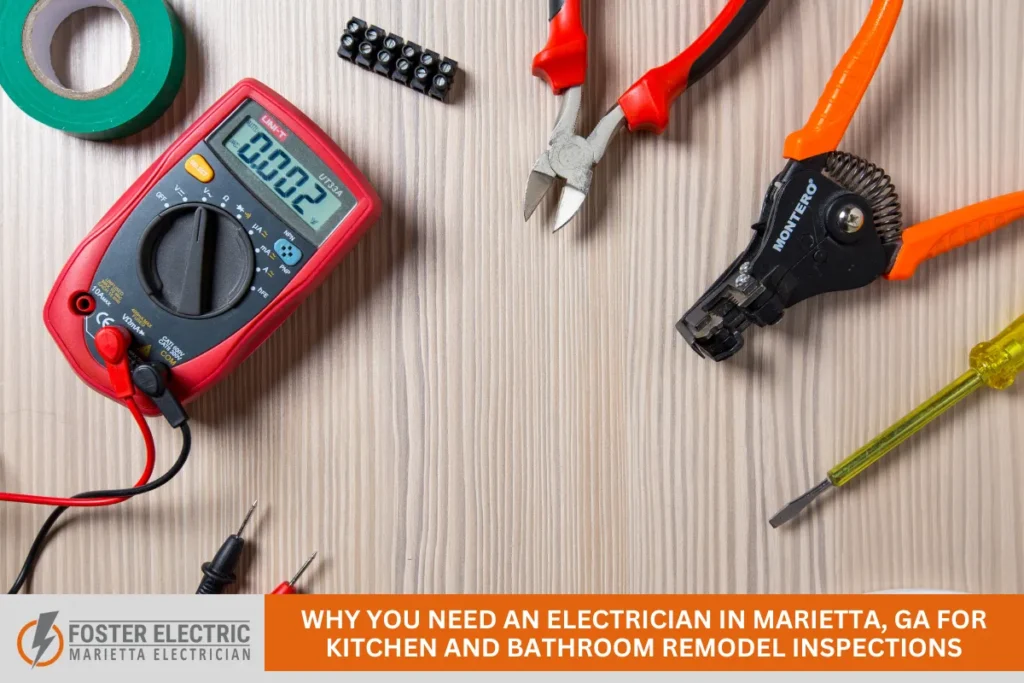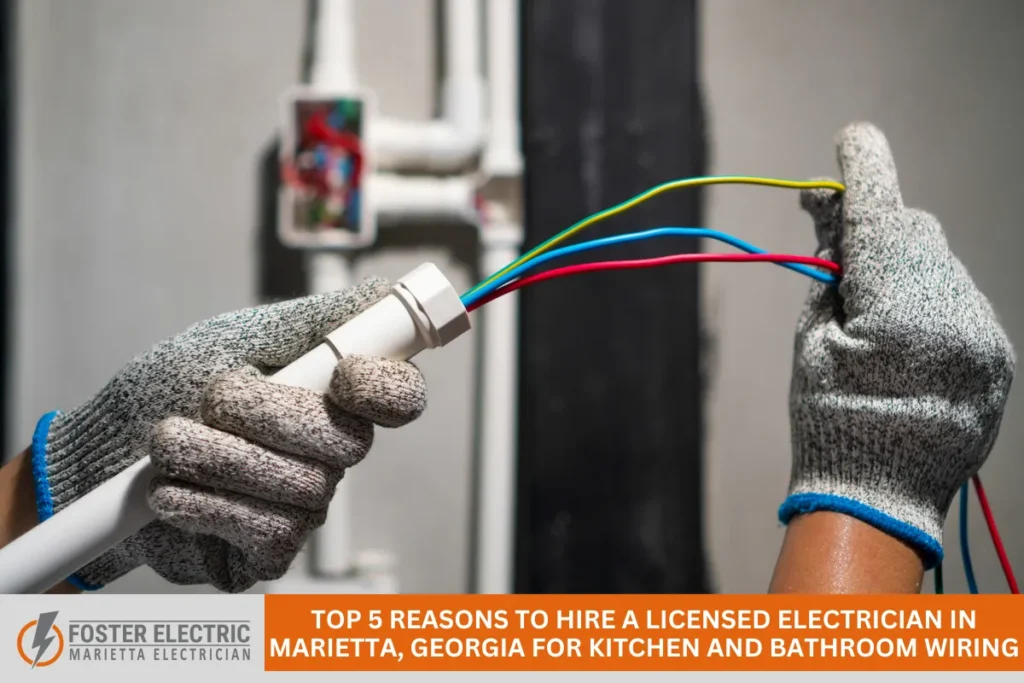An electrician plays a crucial role in ensuring homes and buildings are safe from potential fire hazards, especially in places like Elizabeth, Georgia, where a mix of aging homes and newer developments exist. One of the most effective ways to uncover hidden risks is through a comprehensive electrical inspection. This service provides peace of mind and can ultimately save lives and property.
Electrical fires can ignite silently and spread rapidly, often starting behind walls, in ceilings, or outdated wiring systems. Many of these risks aren’t noticeable until it’s too late. That’s why having your property inspected by a licensed electrician isn’t just a good idea—it’s essential. This article explains how inspections work, the hazards they reveal, and why every homeowner and property manager must schedule regular checks.
What an Electrical Inspection Is
An electrical inspection is a thorough assessment conducted by a qualified electrician to evaluate the safety, functionality, and code compliance of a building’s electrical system. This process involves examining all the major components that power your home, including the service panel, circuit breakers, wiring, outlets, and grounding systems.
The purpose of this inspection isn’t limited to finding current faults—it also serves to identify conditions that could lead to future issues. It checks for problems that may not immediately trigger warning signs, such as loose connections or outdated systems. Electricians also ensure that all installations comply with safety standards set by the National Electrical Code (NEC), which helps prevent hazards such as electrocution, equipment damage, or fire outbreaks.
Why Electrical Fires Happen
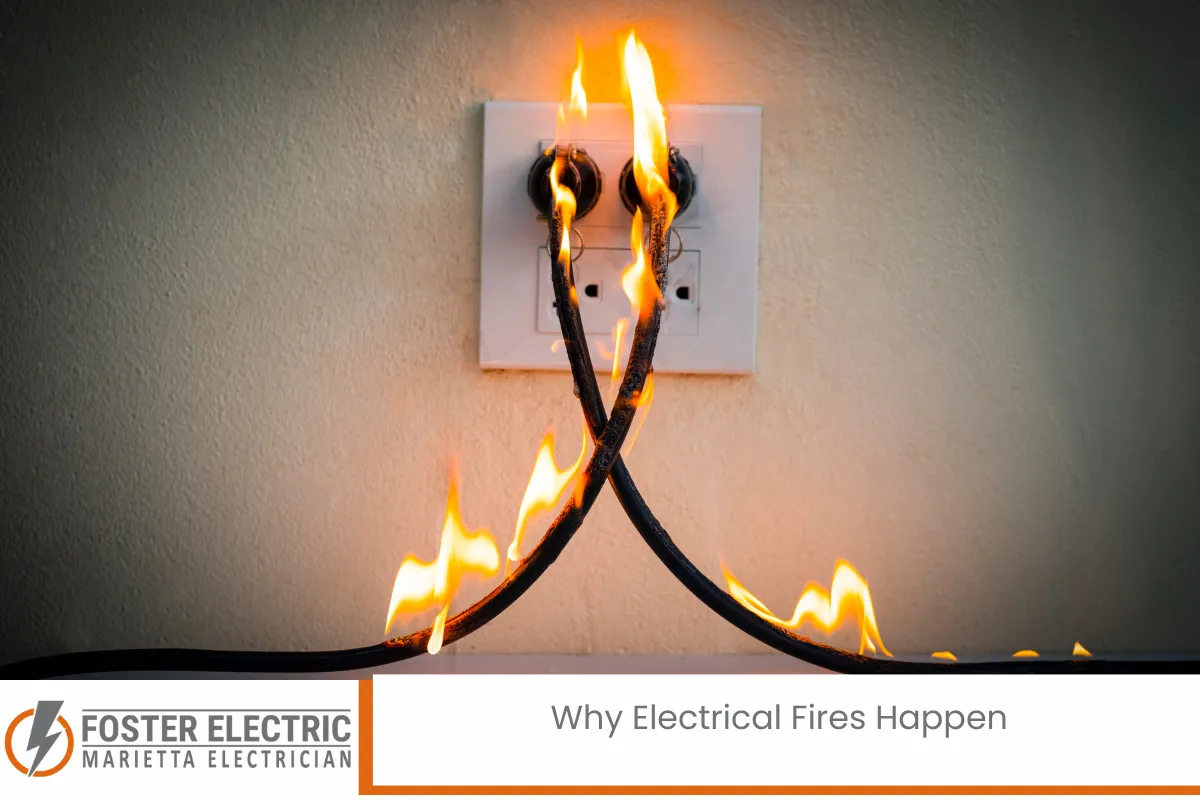
Electrical fires occur when electrical current travels through unintended paths, such as frayed wires, overloaded circuits, or malfunctioning appliances. These unsafe paths generate excessive heat, which can ignite nearby flammable materials, such as insulation, wood framing, or dust accumulation.
Common causes of electrical fires include:
- Deteriorated or damaged wiring
- Faulty electrical panels or breakers
- Poorly installed appliances
- Lack of grounding or bonding
- Overuse of extension cords and power strips
- Arcing from loose connections or worn outlets
In Elizabeth, GA, where older homes often retain their original electrical systems, these risks are particularly prevalent. The combination of aging infrastructure and modern energy demands makes inspections not just helpful but necessary for safety.
What Electricians Look For During an Inspection
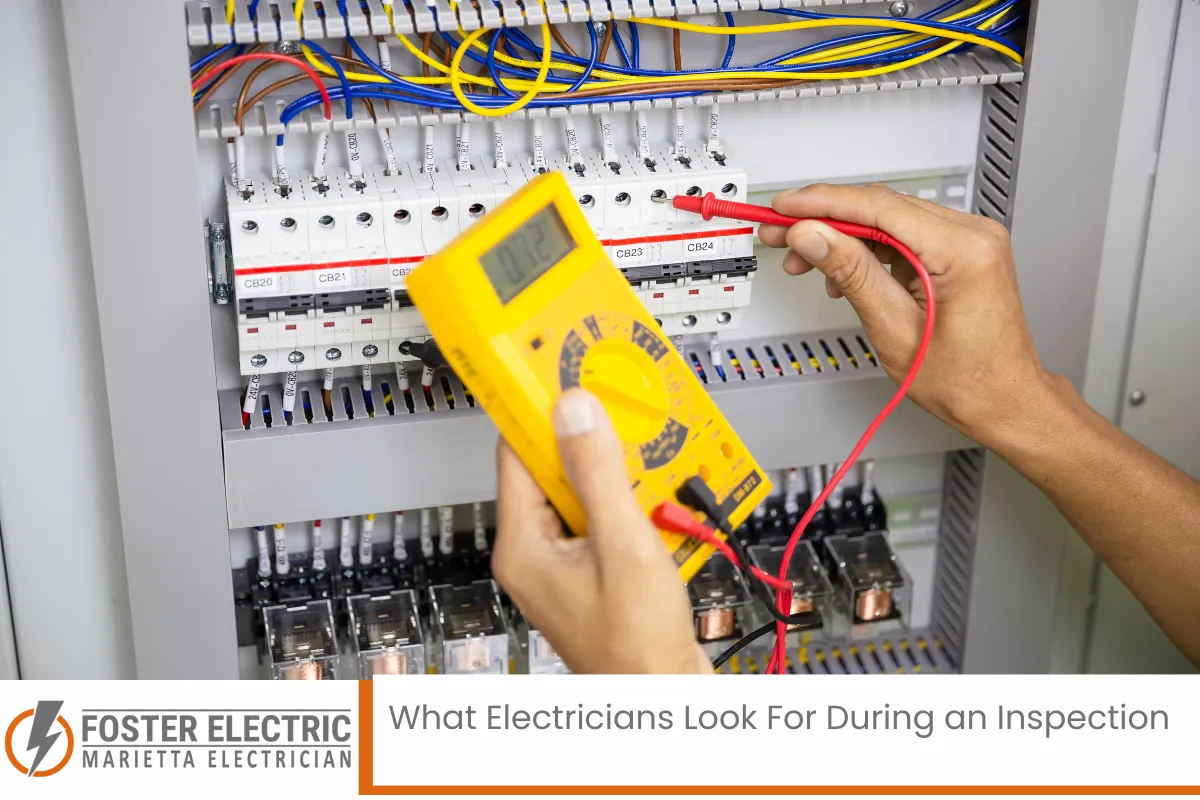
An electrician performing an inspection will conduct a room-by-room evaluation as well as a broader assessment of the electrical infrastructure. Here’s a breakdown of what they typically inspect:
Service Panel and Breakers
This is the central hub of your home’s electrical system. The electrician will inspect for signs of corrosion, burnt contacts, improperly labeled circuits, and faulty breakers. Panels that are outdated or undersized for modern needs may require an upgrade to avoid overheating and tripped breakers.
Electrical Wiring
The condition, type, and layout of wiring are evaluated. An electrician checks for old wiring, such as aluminum or knob-and-tube systems, which are no longer considered safe. Damaged or exposed wires pose an immediate fire risk and must be replaced.
Outlets and Switches
These are tested for proper grounding and connection stability. Loose or warm outlets may signal arcing or overheating. Ground Fault Circuit Interrupter (GFCI) and Arc Fault Circuit Interrupter (AFCI) outlets are inspected to ensure they’re present where required and function correctly.
Grounding and Bonding
The grounding system is crucial for safely directing excess electricity into the earth. Electricians verify that grounding is properly connected and bonded to the system, reducing the chance of shock and equipment failure during surges or lightning strikes.
Circuit Load and Demand
Homes today consume more electricity than ever before, largely due to the increased use of smart devices, HVAC systems, and modern appliances. The electrician assesses whether circuits are overloaded or if more circuits are needed to distribute power safely.
Specific Fire Hazards Found in Elizabeth, Georgia Homes
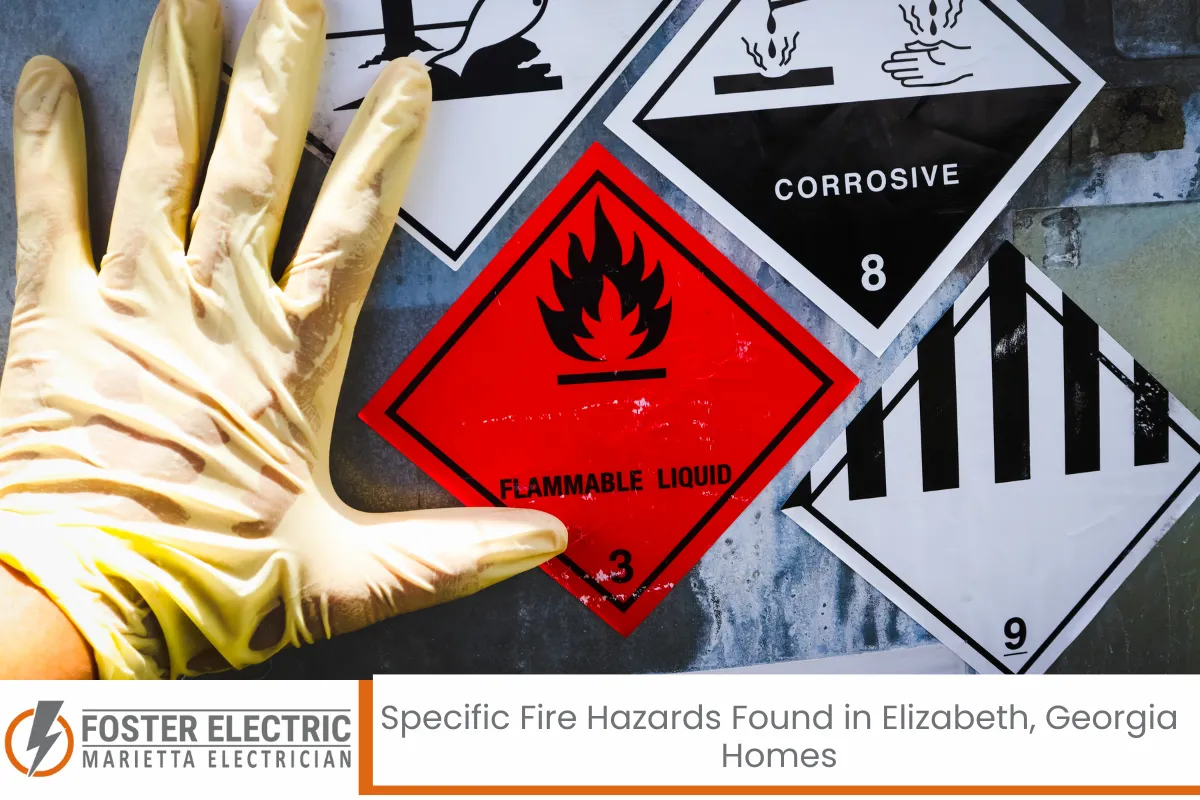
In Elizabeth, homes built before the 1980s often have outdated systems that pose high risks. Some of the most common issues discovered during inspections in this area include:
Aluminum Wiring
Used during the 1960s and 70s due to copper shortages, aluminum wiring expands and contracts more than copper, leading to loose connections and overheating. It’s considered a major fire risk and is typically flagged for replacement during inspections.
Knob-and-Tube Wiring
An even older wiring method, known as knob-and-tube, is no longer approved under the current code. It lacks grounding, degrades over time, and is unable to support modern electrical loads. If this wiring is present in an Elizabeth home, it must be addressed immediately.
Improper Electrical Additions
DIY projects or unlicensed repairs often leave behind unsafe conditions. Electricians often encounter circuits without junction boxes, overloaded outlets, or wires that have been spliced without proper connections.
Overloaded Circuits
Using multiple devices on a single outlet or extension cords can overload circuits. This generates heat that may not trip the breaker but can still ignite materials nearby.
How Often Should You Schedule an Electrical Inspection?
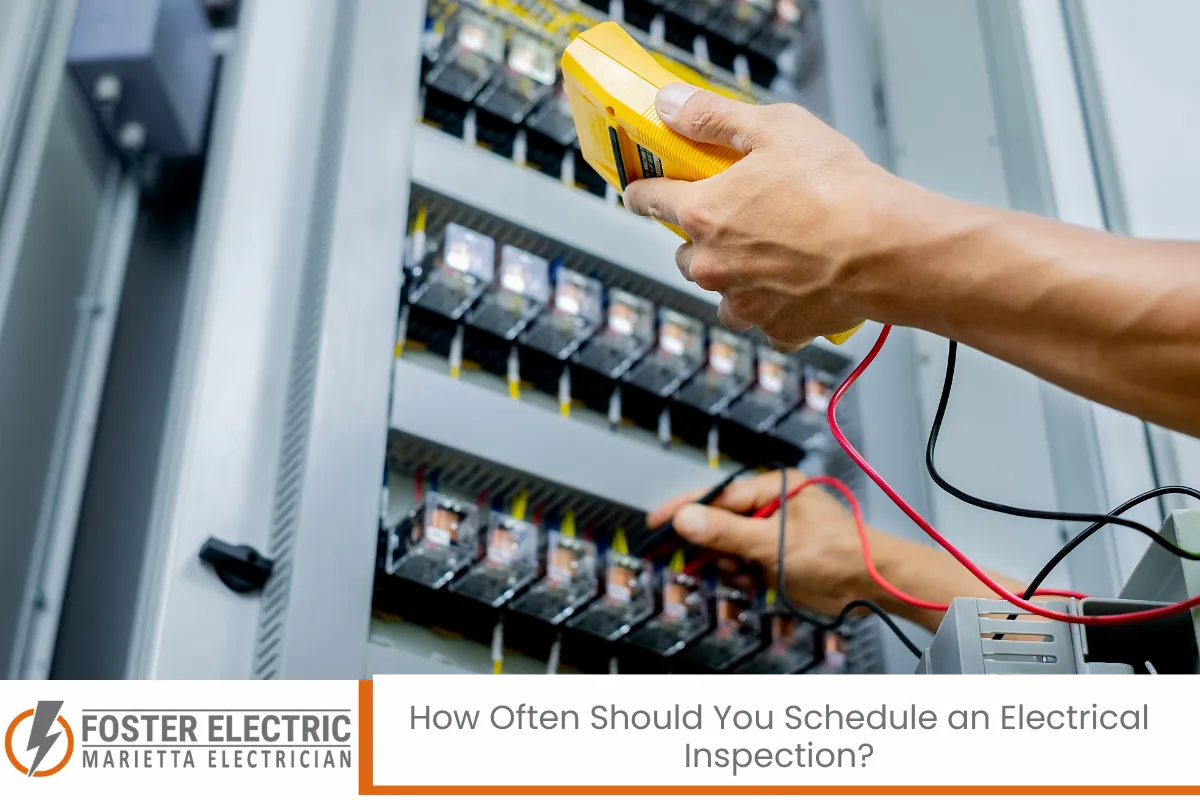
Routine electrical inspections can prevent unexpected problems and ensure ongoing safety. Recommendations for scheduling an inspection include:
- Every 3 to 5 years for standard residential homes
- Immediately after buying a home, especially older properties
- Before starting renovations or adding major appliances
- After a storm or flood, check for water damage to electrical systems
- If you notice warning signs, like buzzing outlets or frequent breaker trips
Sticking to a regular inspection schedule is especially important in Elizabeth, where humid summers and storm activity can accelerate wear on electrical components.
What Happens If You Delay an Electrical Inspection?
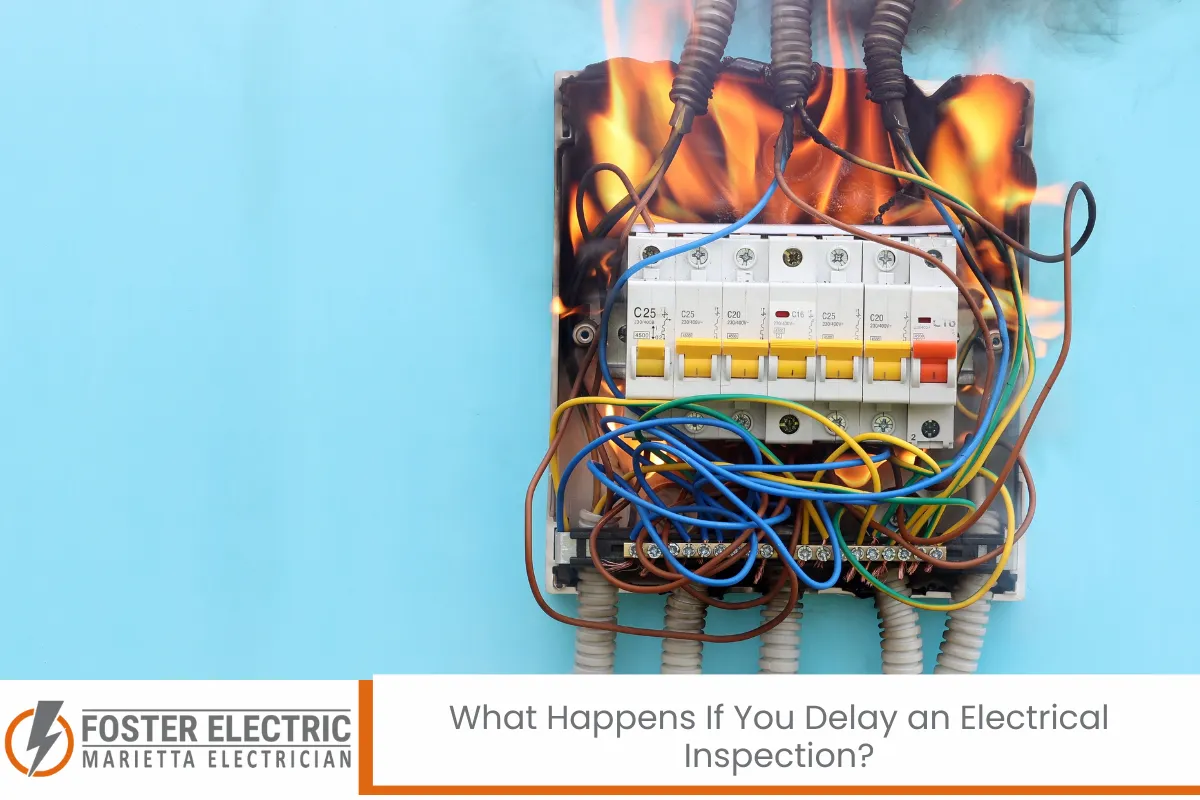
Putting off an inspection might save time and money today. Still, it can ultimately prove to be significantly more costly in the long run. Delayed maintenance often results in:
- Sudden power loss during critical moments
- Electrical fires are causing structural damage
- Increased insurance premiums due to unsafe conditions
- Code violations that make selling or renting the property difficult
- Costly emergency repairs
Inspections are preventative by nature. They enable homeowners to address minor concerns before they escalate into major disasters.
How Electricians Help Prevent Fires
Electricians are trained not only to identify problems but to eliminate them. By conducting repairs, upgrades, and compliance checks, they significantly reduce fire risks. Here’s how:
Replacing Unsafe Components
Old fuse boxes, deteriorated wires, and damaged outlets are removed and replaced with modern, code-compliant alternatives that improve performance and safety.
Installing Protective Devices
Electricians can install or replace GFCIs and AFCIs throughout the home, particularly in areas prone to moisture or high demand, such as kitchens, bathrooms, and bedrooms.
Balancing Electrical Loads
Electricians calculate current usage and adjust circuits or panel capacity to ensure it is properly handled. This prevents overheating and power surges that damage appliances or start fires.
Key Takeaways for Property Owners in Elizabeth, Georgia
Every home has an invisible network of wiring and devices that can either work flawlessly or fail dangerously. Having a licensed electrician conduct an electrical inspection is one of the smartest and safest steps any property owner in Elizabeth can take. Inspections provide early warnings, uncover potential fire hazards, and ensure your system is ready for today’s energy needs.
Neglecting this step could lead to more than just inconvenience—it could lead to tragedy. An inspection offers clarity, protection, and the opportunity to make informed decisions about your property’s safety. Regular inspections are not a luxury—they’re a necessity.
Elizabeth Electrician – Foster Electric
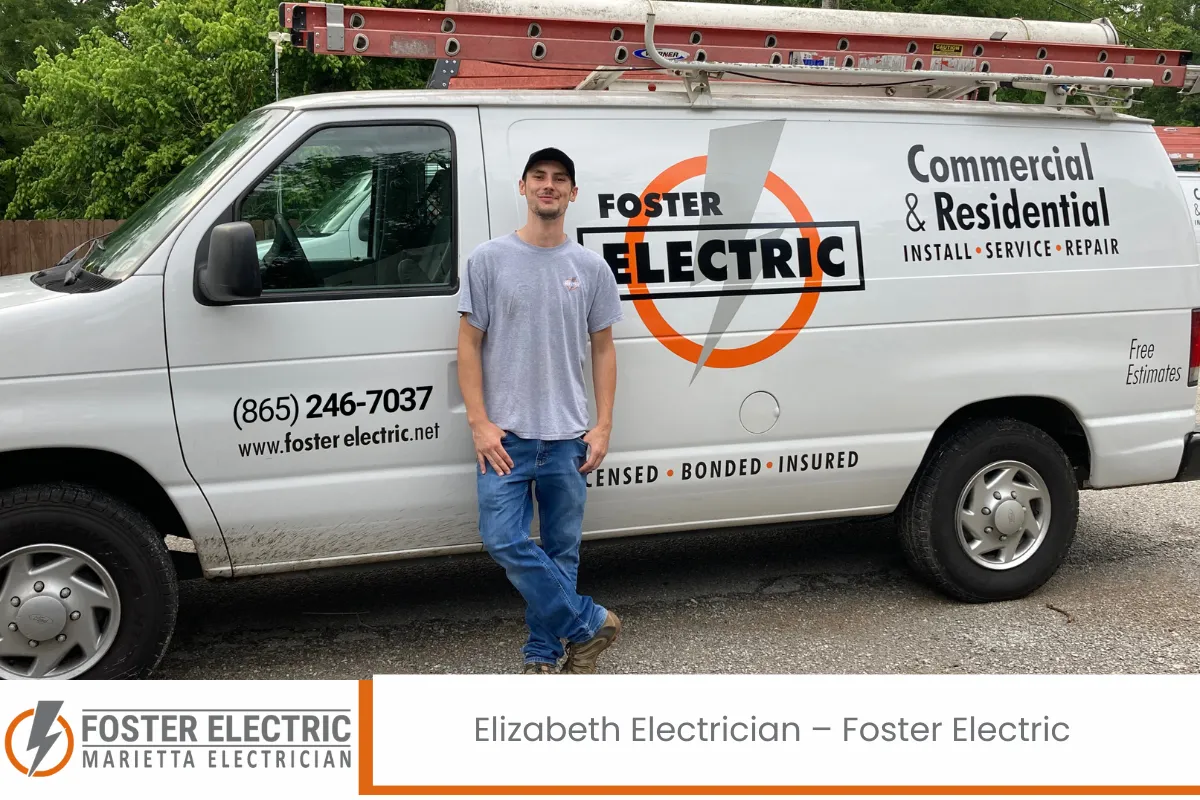
Looking for a reliable electrician in Elizabeth, Georgia? Foster Electric provides professional electrical inspections and comprehensive solutions to ensure your home or business remains safe and compliant with local codes. Our licensed electricians know exactly what to look for and how to fix it—whether it’s outdated wiring, overloaded circuits, or hidden fire hazards.
We’re the trusted choice in Elizabeth for electrical repairs, upgrades, and maintenance. From minor fixes to complete system overhauls, we handle every job with attention to detail and a strong focus on safety.
Call (404) 855-4797 today to book your inspection or speak with a qualified electrician!
Electrician FAQs: Fire Safety, Inspections, and Electrical System Risks
What are the most common electrical hazards an electrician finds during inspections?
An electrician performing a safety inspection often uncovers hidden dangers that can escalate into fire risks if left unaddressed.
Some of the most frequent electrical hazards include:
- Exposed wiring in walls or ceilings
- Overloaded breaker panels and circuit breakers that trip too often
- Burned outlets emitting burning smells
- Outdated outlets that lack grounding or GFCI outlets in wet areas
- Loose wire connections and faulty extension cords used permanently
- Signs of moisture damage near the electrical panel
These issues compromise electrical safety and can lead to short circuits, shocks, or even electrical fires. An electrician in Elizabeth, Georgia, will conduct a detailed visual inspection, assess your home’s compliance with local codes and safety standards, and recommend repairs or upgrades to keep your home’s electrical system safe. Scheduling routine electrical inspections is the first step in preventing accidents and improving long-term energy efficiency.
When should an electrician inspect your home’s electrical system?
You should contact an electrician for a complete electrical safety inspection under several circumstances. Timely inspections not only protect your property but also ensure that all systems meet electrical code standards.
Common reasons to schedule an inspection include:
- Before or after major renovations
- When installing smart home technology or new appliances
- If your home is older than 25 years
- After severe storms or flooding
- When flickering lights or frequent tripped circuit breakers occur
- When adding circuits to the main panel or expanding service capacity
During the inspection process, the electrician will check your electrical panel, outlets, and wiring for signs of overload, damage, or outdated configurations. Ensuring the proper use of surge protectors, verifying grounded circuits, and identifying the presence of space heaters in unsafe configurations are essential parts of the job. Staying up to date with local codes in Elizabeth helps reduce safety risks, enhance energy efficiency, and increase your home’s value.
How does an electrician protect a home from fire-related electrical issues?
An electrician protects your home from fire hazards by identifying and correcting weak points in your home’s electrical system that don’t meet current electrical codes or safety standards.
Here’s how it’s done:
- A full visual check of wiring, outlets, and the electrical panel
- Testing GFCI outlets, circuit breakers, and the main panel for functionality
- Replacing worn outlets, scorched switches, and outdated breaker panels
- Installing appropriate surge protection to guard against voltage spikes
- Verifying that space heaters are used safely with proper circuits
- Removing unsafe extension cords being used as permanent solutions
The electrical inspection includes identifying burning smells, checking for exposed wiring, and ensuring all connections are tight and corrosion-free. These proactive steps eliminate possible ignition sources. Following electrical codes and scheduling regular electrical inspections ensures your home remains safe and efficient. In Elizabeth, having an experienced electrical contractor conduct these checks is a smart move for long-term peace of mind.
Can outdated breaker panels increase fire risk in your home?
Yes, outdated breaker panels are a significant fire hazard and one of the most common problems found during electrical safety inspections. Many older panels can’t handle the power demands of today’s smart home technology, large appliances, or even multiple space heaters running at once. When these panels are overloaded, they may fail to trip properly, allowing heat to build up in wires and connections.
Some signs that your panel may need an upgrade include:
- Frequent tripping of circuit breakers
- Buzzing sounds or burning smells coming from the panel
- Rust or moisture damage inside the main panel
- A lack of available slots for new circuits
An electrician will assess your panel’s capacity, age, and safety during a visual inspection. Replacing an outdated panel ensures compliance with current electrical codes, improves energy efficiency, and safeguards your electrical system from hazardous electrical conditions.
Are surge protectors enough to prevent electrical damage and fires?
Surge protectors are essential, but they are not a complete solution for preventing fires and safeguarding your home’s electrical system. While they help manage sudden voltage spikes—often caused by lightning strikes, power outages, or faulty appliances—they don’t replace the need for a code-compliant, well-maintained electrical system.
Here’s what a surge protection strategy should include:
- Whole-home surge protectors installed at the electrical panel
- Point-of-use protectors for computers, TVs, and other electronics
- Grounded outlets with working GFCI outlets in wet areas
- Routine electrical inspections by a qualified electrician
Even with the best surge protection, faulty circuit breakers, exposed wiring, or overloaded extension cords can still pose serious risks. A licensed electrical contractor in Elizabeth can assess your setup and recommend improvements to ensure compliance with local codes and safety standards. When properly installed and maintained, surge protection systems enhance safety, preserve appliance lifespan, and contribute to better energy efficiency throughout your home.
Read more: Why You Need an Electrician in Marietta, GA, for Kitchen and Bathroom Remodel Inspections

